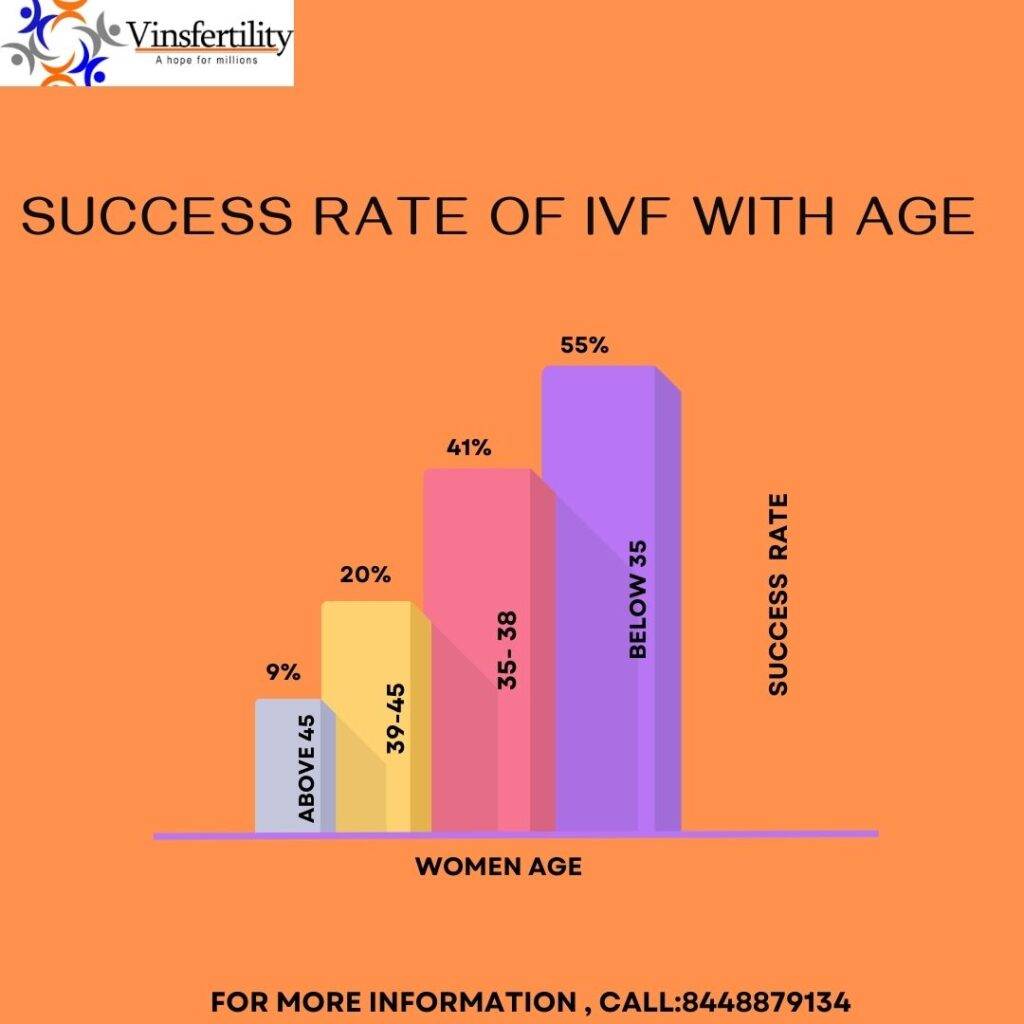Popular Searches
IVF Treatment Cost in India 2024
IVF Cost in India
IVF, sometimes referred to as “test tube baby” or “in-vitro fertilisation,” is a sophisticated technique used in reproductive assistive technologies. It is a non-surgical and non-invasive procedure that usually takes about 4 to 5 weeks, depending upon the individual patient’s condition.
The IVF cost in India can range from INR 90,000 (1078 $) to INR 3,00,000 (3595 $) for each IVF Cycle, which includes all the charges including the cost of medicines prescribed, injections, procedures, location clinic, Doctor’s Qualifications, IVF treatment type, medical condition, etc. The cost of IVF can fluctuate depending on your choice of the city, the hospital you choose to go for, and several other factors as well.

Why is India a preferred destination for IVF?
The birth of a test-tube baby in 1978 marked the beginning of successful IVF treatment in India. She was the world’s second baby born in a test tube. This demonstrates how good IVF care is in India.
Since then couples from all parts of the world travel to India for IVF treatment as the number and quality of treatments have improved in India. Most important factor which influences people to choose India as their preferred destination for IVF is the cost-effective treatment.
Travelling abroad for fertility treatment is referred to as reproductive tourism, which is also called fertility tourism.
This industry is still in its early stages in India. We are among the best five countries in the world for medical tourism. Thirty percent of individuals seeking treatment are thought to have this country as their preferred destination.
Factors affecting the cost of IVF:
There are enormous factors which affect IVF cost in India,
- IVF cycles are necessary for a successful conception
- Selecting a hospital or Fertility Clinic
- Gynecologist’s consultation fees
- Embryo freezing costs
- Expense of donor semen and eggs
- The price of preoperative diagnostic testing (which, if necessary, may include DNA fragmentation, PGT, PGD, and PGS).
- Reasons for infertility problems
- Costs for postoperative consultations
- Required medication dosages based on age
- Insurance for donors
- Aspiration procedure for sperm
Components of IVF treatment cost:
| Procedures | Cost |
|---|---|
| Initial Consultation | INR 6,000 - INR 12,000 |
| Diagnostic Tests | INR 17,000 - INR 30,000 |
| Ovarian Stimulation | INR 70,000 - INR 90,000 |
| Monitoring | INR 15,000 - INR 30,000 |
| Egg Retrieval | INR 32,000 - INR 55,000 |
| Sperm Preparation | INR 15,000 – INR 20,000 |
| Fertilization | INR 15,000 - INR 30,000 |
| Embryo Culture | Included in Fertilization Cost |
| Embryo Transfer | INR 30,000 - INR 35,000 |
| Medications Post-Transfer | INR 10,000 - INR 20,000 |
| Pregnancy Test | INR 1,000 - INR 2,000 |
| Total Estimated Cost for Standard IVF Cycle | INR 1.4 – INR 2.0 Lakhs |
| IVF Treatment with Self Egg | INR 1.0 - INR 2.4 Lakhs |
| IVF with Donor Egg | INR 2.75 – INR 3.2 Lakhs |
| IVF with ICSI | INR 1.5 - INR 1.90 Lakhs |
| IVF Treatment with Donor Sperm | INR 2.3 Lakhs |
| IVF with Laser Assisted Hatching | INR 2.5 Lakhs |
| IVF with PGD/PGS Technique | INR 2.80 – INR 3.4 Lakhs |
| IVF with TESA/PESA | INR 2.80 – INR 3.4 Lakhs |
There are three main steps involved in IVF treatment:
- Pre-treatment
- The IVF Procedure
- Post-Treatment
Pre-treatment: This step includes consultation fees (Consultation with a fertility specialist to determine the course of treatment and evaluate needs.) and diagnostic tests (Comprises assessments of the fertility state using blood tests, ultrasounds, semen analysis, etc.) involved in IVF treatment.
The IVF Procedure: This procedure includes the following:
- Ovarian Stimulation: Medicines to increase the ovaries’ ability to generate eggs in large quantities.
- Monitoring: Blood tests and ultrasounds on a regular basis to track the development of the eggs during ovarian stimulation.
- Egg Retrieval: An operation to remove eggs from the ovaries.
- Sperm Preparation: Preparing a sample of sperm for fertilisation.
- Fertilisation: In vitro fertilisation of eggs and sperm in the lab.
- Embryo Culture: Growing embryos in the lab for a few days post-fertilization.
- Embryo Transfer: Placing the embryo(s) into the uterus.
Post-Treatment: This step includes Medications Post-Transfer (Hormonal support post-embryo transfer) and Pregnancy Test (Blood test to confirm pregnancy about two weeks after embryo transfer).
Types of Infertility Treatment in India:
IVF with Donor Egg: A couple may want to think about using donor eggs if they are unable to conceive after trying in vitro fertilisation with the woman’s eggs.
IVF with ICSI: A couple may want to think about using donor eggs if they are unable to conceive after trying in vitro fertilisation with the woman’s eggs.
IVF Treatment with Donor Sperm: IVF works similarly to a standard IVF cycle. The sole distinction is that donor sperm is used to fertilise the eggs rather than the male partner’s sperm fertilising the female partner’s eggs
IVF with Laser Assisted Hatching: The greater the embryo’s chances of attaching or implanting into the uterine wall, the easier it will be for it to hatch.
IVF with PGD/PGS Technique: Before their embryos are implanted, a couple undergoing infertility treatments like IVF might be recommended to have them genetically tested. PGD (preimplantation genetic diagnosis) and PGS (preimplantation genetic screening) are the two tests performed on embryos. Only the embryos devoid of genetic defects are placed in the female’s uterus following the testing
IVF with TESA/PESA: Percutaneous Epididymal Sperm Aspiration (PESA) and Testicular Sperm Aspiration (TESA) are methods used when there are no sperm in the semen to extract sperm directly from the testes/epididymis.
IVF Cost in City:
| S.No | City | Cost Range (INR) |
| 1 | Mumbai | ₹1,40,000 – ₹ 2,50,000 |
| 2 | Bangalore | ₹1,50,000 – ₹2,65,000 |
| 3 | Chennai | ₹1,40,000 – ₹ 2,30,000 |
| 4 | Delhi | ₹90,000 – ₹ 1, 60,000 |
| 5 | Nagpur | ₹1,80,000 – ₹ 2,20,000 |
| 6 | Hyderabad | ₹1,30,000 – ₹ 1,90,000 |
| 7 | Pune | ₹90,000 – ₹1,20,000 |
| 8 | Kolkata | ₹1,10,000 – ₹1,80,000 |
Success rate of IVF in India based on female’s age:

The biggest factor influencing the success rate of in vitro fertilisation (IVF) is the age of the woman. IVF success rates start to decline after the mid-30s, specifically after the age of 40. This is mainly due to the quality and quantity of women’s egg that decline naturally with age.
Some of the best and low-cost IVF centers in India:
- Ayushman Infertility Center, Delhi
- Vinsfertility, Delhi
- Saraogi Hospital, Mumbai
- Riah Fertility Centre, Mumbai
- Ayushman Hospital and Health Service, Delhi
- Morpheus Mulund Fertility Center, Mumbai
- Oasis Fertility Centre, Bangalore
- IVF Spring Fertility Clinic, Mumbai
- Indira IVF, Kolkata
- Chennai Fertility Center, Chennai
FREQUENTLY ASKED QUESTIONS (FAQS)
1. How much does IVF cost in India?
Ans: In India, the average cost of one cycle of in vitro fertilisation (IVF) is between Rs. 90,000 and Rs. 3,00,000.
2. How many cycles of IVF are needed to get pregnant?
Ans: Women with high egg supply have a higher chance of producing a viable embryo during the first cycle and have a good chance of becoming pregnant whereas elderly and patients with low egg supply have to go through more than one cycle of IVF.
3. Are IVF babies normal?
Ans: From a physical and mental viewpoint, children conceived through in vitro fertilisation are no different from other children. They are also equally natural as other kids. IVF is a taboo topic, so many people still have misconceptions about it and are doubtful about it.
4. What is the difference between IVF and ICSI?
Ans: As assisted reproductive treatments (ART), IVF, and ICSI involve fertilising eggs outside the body using sperm. ICSI is utilised when male is the reason for infertility, and IVF is utilised when the reason for infertility is female.
5. Why do IVF babies look different?
Ans: When the egg or sperm are used from the donors in IVF, the child’s appearance may differ slightly from that of the intended parents because the DNA used in the process comes from the donor. In this case, the baby may inherit the donor’s eye colour, hair type, and other characteristics.
MBBS, DNB in Obstetrics and Gynaecology, Bangalore. Fellowship in Radiology, Fellowship in Infertility treatment, Senior Resident at St. John’s Hospital, Consultant(OBG) at Apollo Cradle, Consultant (OBG) at Aishwarya Infertility Hospital, IVF Consultant - Ayushman Hospital ( Presently )



